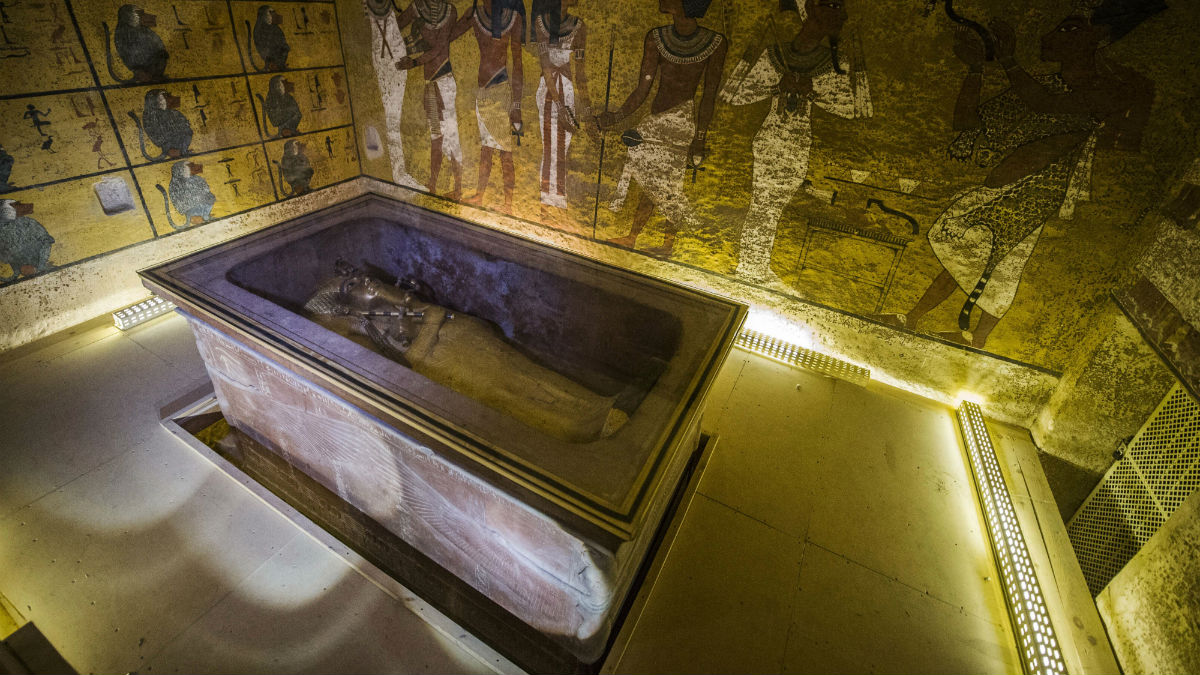Tutankhamun's dagger 'was of extra-terrestrial origin'
New analysis of young pharaoh's knife suggests it was made with iron from a meteorite

A free daily email with the biggest news stories of the day – and the best features from TheWeek.com
You are now subscribed
Your newsletter sign-up was successful
A dagger found in the tomb of King Tutankhamun was made with iron from a meteorite, new analysis has shown.
Researchers from Italy and the Egyptian Museum used "X-ray fluorescence spectrometry" to accurately discover what the young pharaoh's knife was made from, says an article published in Meteoritics & Planetary Science.
The iron blade, which lay next to the teenage king's corpse, had "puzzled researchers" since the discovery of tomb in 1925, says The Guardian. "Ironwork was rare in ancient Egypt, and the dagger's metal had not rusted," it adds.
The Week
Escape your echo chamber. Get the facts behind the news, plus analysis from multiple perspectives.

Sign up for The Week's Free Newsletters
From our morning news briefing to a weekly Good News Newsletter, get the best of The Week delivered directly to your inbox.
From our morning news briefing to a weekly Good News Newsletter, get the best of The Week delivered directly to your inbox.
The new analysis was able to match the chemical composition of the blade to a meteorite named Kharga, which was discovered at Mersa Matruh, 150 miles west of Alexandria, in 2000.
The high nickel content, along with the substantial levels of cobalt, "strongly suggests an extra-terrestrial origin", say the researchers.
The Egyptians may have known the iron had come from a meteorite, or at least an alien substance.
"We suggest that ancient Egyptians attributed great value to meteoritic iron for the production of fine ornamental or ceremonial objects," says the article.
A free daily email with the biggest news stories of the day – and the best features from TheWeek.com
A hieroglyph from that time translates literally into "iron of the sky". This, the researchers say, "suggests that the ancient Egyptians, in the wake of other ancient people of the Mediterranean area, were aware that these rare chunks of iron fell from the sky already in the 13th century BC, anticipating Western culture by more than two millennia".
The discovery has led to calls for more of King Tut's burial findings to be analysed using this technique.
"It would be very interesting to analyse more pre-Iron Age artefacts, such as other iron objects found in King Tut's tomb," Daniela Comelli, of the physics department at Milan Polytechnic, told Discovery News. "We could gain precious insights into metal working technologies in ancient Egypt and the Mediterranean."